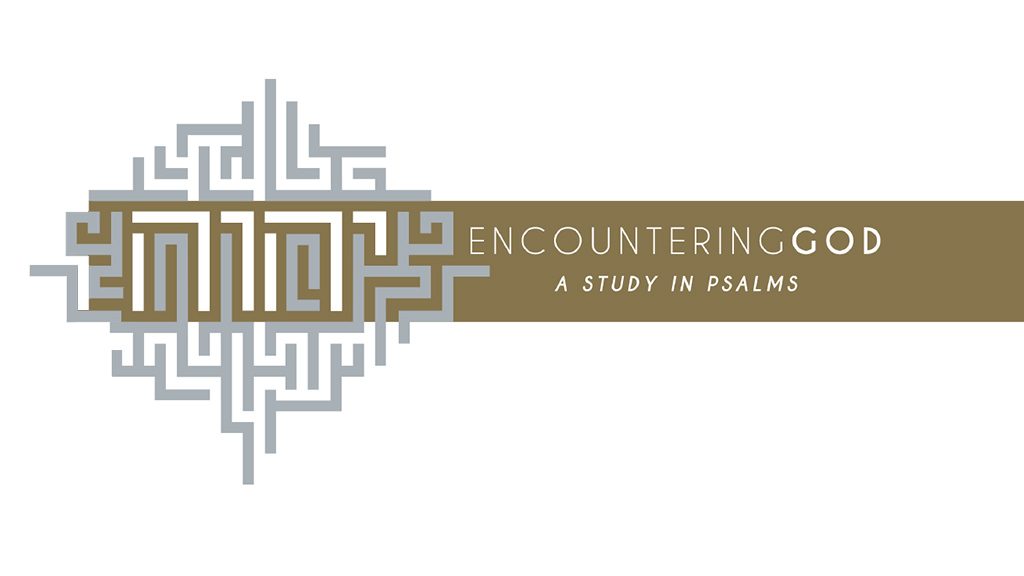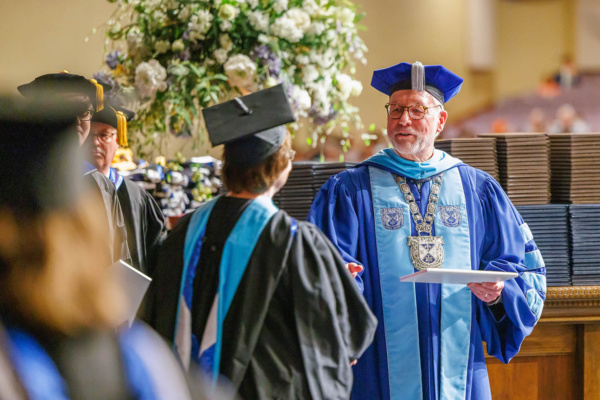We are created for worship. The most natural thing for man to do is to devote his heart, passion, dreams and energies to something or someone. Take away worship, and life has no meaning. Worship is intertwined with what it means to be human. If we refuse to worship God, we resort to worshiping some kind of idol (Rom. 1:21–23). Worship is not optional!
Exalt the Lord our God, and worship at his holy hill; for the Lord our God is holy. (Psalm 99:9)
The greatest command and the greatest calling for believers is to worship God. “O worship the Lord in the beauty of holiness: fear before him, all the earth” (Ps. 96:9). The question is: How do we worship God?
Psalm 15 was written to answer this question. The occasion of the psalm is unknown. Perhaps worshipers sang it as they journeyed to Jerusalem to worship God in the temple during the three annual Jewish festivals. Spurgeon suggests it was written after the ark was brought to Jerusalem under David’s direction. In his first attempt to move the ark, David failed to follow the law’s directions, and the results were devastating (2 Sam. 6:1–7). On his second attempt, David obeyed the commands of the Lord concerning the manner in which the ark was to be moved (1 Chron. 15:1–2).[1]
God does not give us the option to worship according to our own designs. There is no such thing as alternative worship. Biblical worship is prescriptive. It is to be regulated by God’s Word. In Psalm 15, David asks a convicting question (v. 1) and then gives a clarifying answer (vv. 2–5) concerning how we prepare ourselves to enter into the holy presence of God to worship.
Who Can Worship God?
Psalm 15:1
Lord, who shall abide in thy tabernacle? who shall dwell in thy holy hill?
David is referring to both places where God’s presence dwelt and where the Jewish people were to worship God—the tabernacle (a tent) and the temple (a building) on Mount Zion in Jerusalem.
Who is permitted to come and worship a holy God? This is a convicting question. If God is too pure to look upon evil (Hab. 1:13), then who is qualified to have intimate fellowship with Him? If perfect angels humbly bow before God in reverence and awe and cry, “Holy, holy, holy” (Isa. 6:3), then what should sinful humans do when seeking to come into God’s presence? Is anyone worthy enough to stand before God?
The message of Scripture is that there is only one who is worthy—Jesus Christ!
Worthy is the Lamb that was slain to receive power, and riches, and wisdom, and strength, and honour, and glory, and blessing. (Rev. 5:12)
By His sinless life and perfect obedience, Jesus entered into heaven on the merits of His own righteousness. He now intercedes on our behalf as our mediator before the Father’s throne above. It is only through Him and by Him that we can have entrance into God’s holy place.
Having therefore, brethren, boldness to enter into the holiest by the blood of Jesus, by a new and living way, which he hath consecrated for us, through the veil, that is to say, his flesh. (Heb. 10:19–20)
We have access to worship God only when we humbly repent of our sins and fully depend on the blood of Christ. We cannot worship God unless we are in Christ.
What Are the Qualifications to Worship God?
David gives a clarifying answer to his rhetorical question. Through Christ we gain access to worship God, but this does not preclude the necessity of righteous living in order to worship God.
In the Old Testament there were strict regulations for the kinds of sacrifices that could be offered to God. Likewise, when you come to God, there are specific requirements for worshiping God acceptably.
We should not find this strange. When Paul gave directions concerning the Lord’s Supper, he commanded believers to search their hearts: “But let a man examine himself” (1 Cor. 11:28). Therefore, in order to worship God, we must search our own hearts and judge our own actions. We do not earn the right to be in God’s presence by living righteously, but holiness is necessary to abide there and truly worship the Lord. Derek Kidner explains, “Indeed the question of [Psalm 15] verse 1 spoke of dwelling rather than gaining admissions, for the qualities the psalm describes are those that God creates in a man, not those he finds in him.”[2]
Right Conduct
Psalm 15:2
He that walketh uprightly, and worketh righteousness, and speaketh the truth in his heart.
Worship is usually associated with ritual. World religions emphasize what people must do in order to gain the favor of their deities. Sometimes that means chanting sacred words. Sometimes that means performing painful sacraments, like ascending steps on bare knees.
Ceremony in and of itself is not evil. The Old Testament is full of it, and New Testament worship includes habitual practices as well (e.g., the public reading of Scripture; 1 Tim. 4:13). But David answers the question about qualifications for worship, not in terms of ceremony but of faithful living.
These three principles—walketh, worketh and speaketh—refer to the actions and habits of a sound spiritual life. In order to worship God, our daily lifestyle must be blameless. We must live in conformity to the commands of God’s Word. We must speak with our mouths what is consistent with our hearts. All these things are necessary for entering into spiritual fellowship with God. Hypocrisy in worship is when we say spiritual words without engaging our hearts, or when we profess to have integrity that does not match how we actually live.
Right Conversation
Psalm 15:3
He that backbiteth not with his tongue, nor doeth evil to his neighbour, nor taketh up a reproach against his neighbour.
The word devil means slanderer. Satan spoke three times that are recorded in the Bible. Each time his words were intended to destroy trust in another person (Gen. 3; Job 1–2; Matt. 4). We cannot praise God and, at the same time, curse men (James 3:9–10). We should never do wrong to another human being, especially our closest friends or relatives. We should never demean or discredit another person. Our words must build up and not tear down (Eph. 4:29).
Right Commitments
Psalm 15:4
In whose eyes a vile person is contemned; but he honoureth them that fear the Lord. He that sweareth to his own hurt, and changeth not.
True worshipers must choose to worship with those who fear the Lord. Those who are morally defiled and corrupt are to be rejected.
Furthermore, we are to keep the promises we make. Even if it is painful or leads to personal loss, we should keep the pledges we make. This includes things such as marriage, loans and promises. These are all commitments we must keep as we seek to enter into God’s worship.
Psalm 15:5
He that putteth not out his money to usury, nor taketh reward against the innocent.
Nothing reveals the nature of the heart more than our use of money. Entering into worship requires that we treat others right in our finances. The law strictly prohibited Jews from loaning their money to a fellow Israelite with interest. Bribes were also forbidden because they provoked people to violate moral principles.
When seeking to worship God, our consciences must be right in relation to our finances. Ultimately, we must not use money for selfish advantage. People are more important than money, so we should use it to help and serve others (Eph. 4:28; Acts 20:35).
Conclusion
David concludes Psalm 15 with a promise of permanence.
Psalm 15:5
He that doeth these things shall never be moved.
If we heed the spiritual conditions for worship, we will never be shaken. We will stand firm.
Dr. William Barrick offers five important applications from Psalm 15:[3]
- “Worship should not be overly casual.”
- “The heart is important.”
- “Relationships are important.”
- “How we handle our money is important.”
- “None of us can accomplish these things in our own wisdom or power.”
1] C.H. Spurgeon, The Treasury of David (Peabody, MA: Hendrickson Publishers, 1988), 1:176.
[2] Derek Kidner, Psalm 1–72: An Introduction and Commentary, ed. D. J. Wiseman (Downers Grove, IL: InterVaristy Press, 1973), 99.
[3] William D. Barrick, “Psalms, Hymns, and Spiritual Songs: The Master Musician’s Melodies,” 2003, http://drbarrick.org/files/studynotes/Psalms/Ps_015.pdf.
Listen to Dr. Pettit’s chapel message on Psalm 15:
Join us for chapel every Monday through Thursday at 11 a.m. EST.








